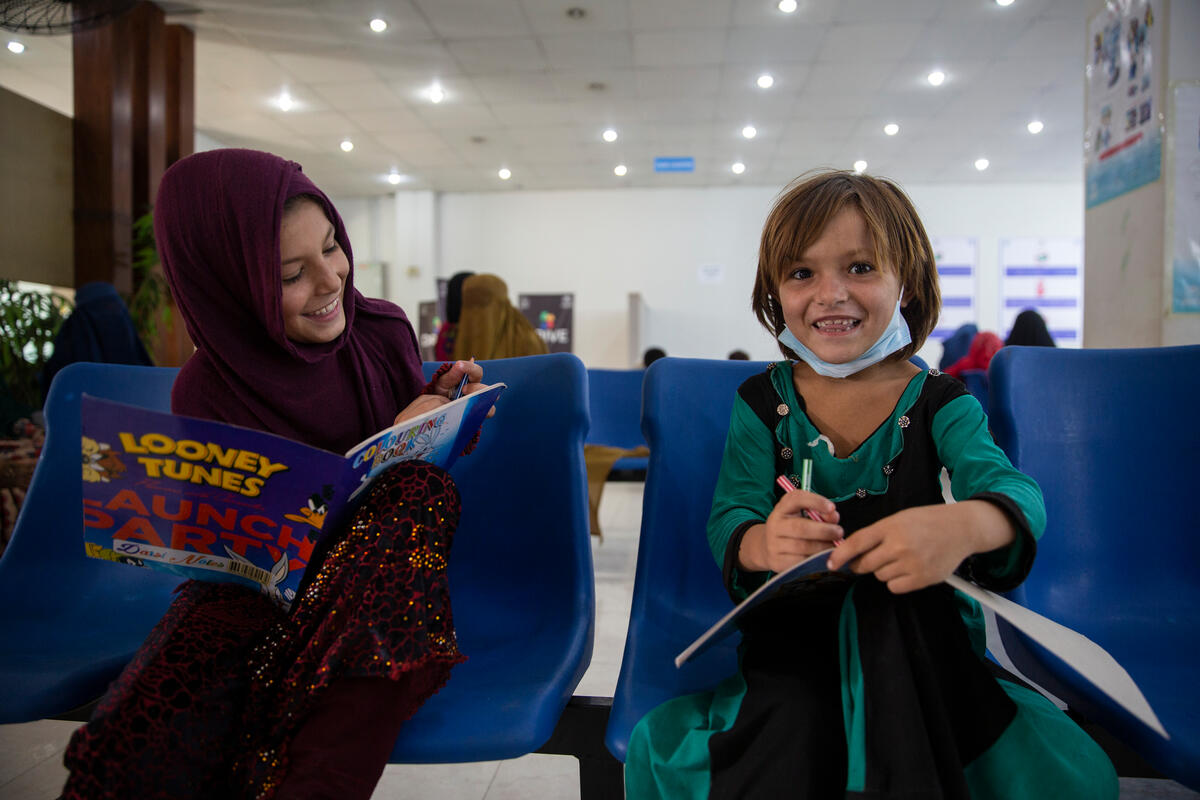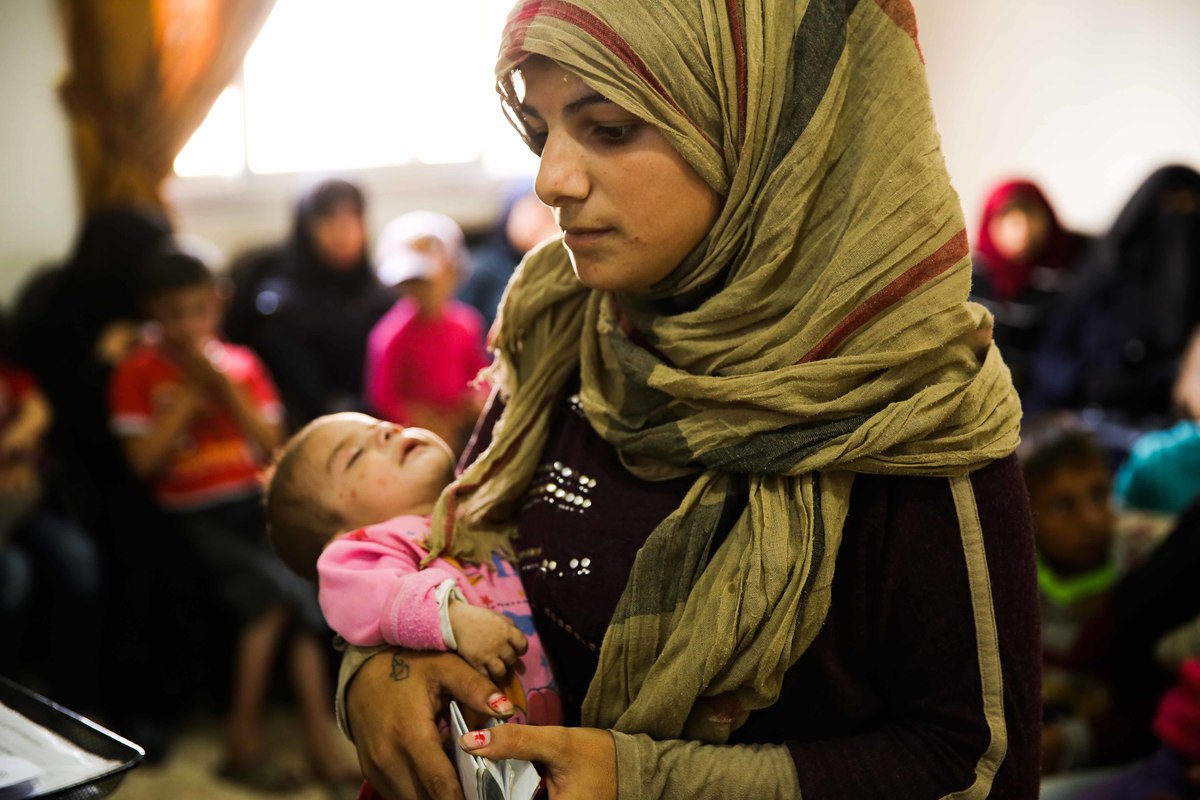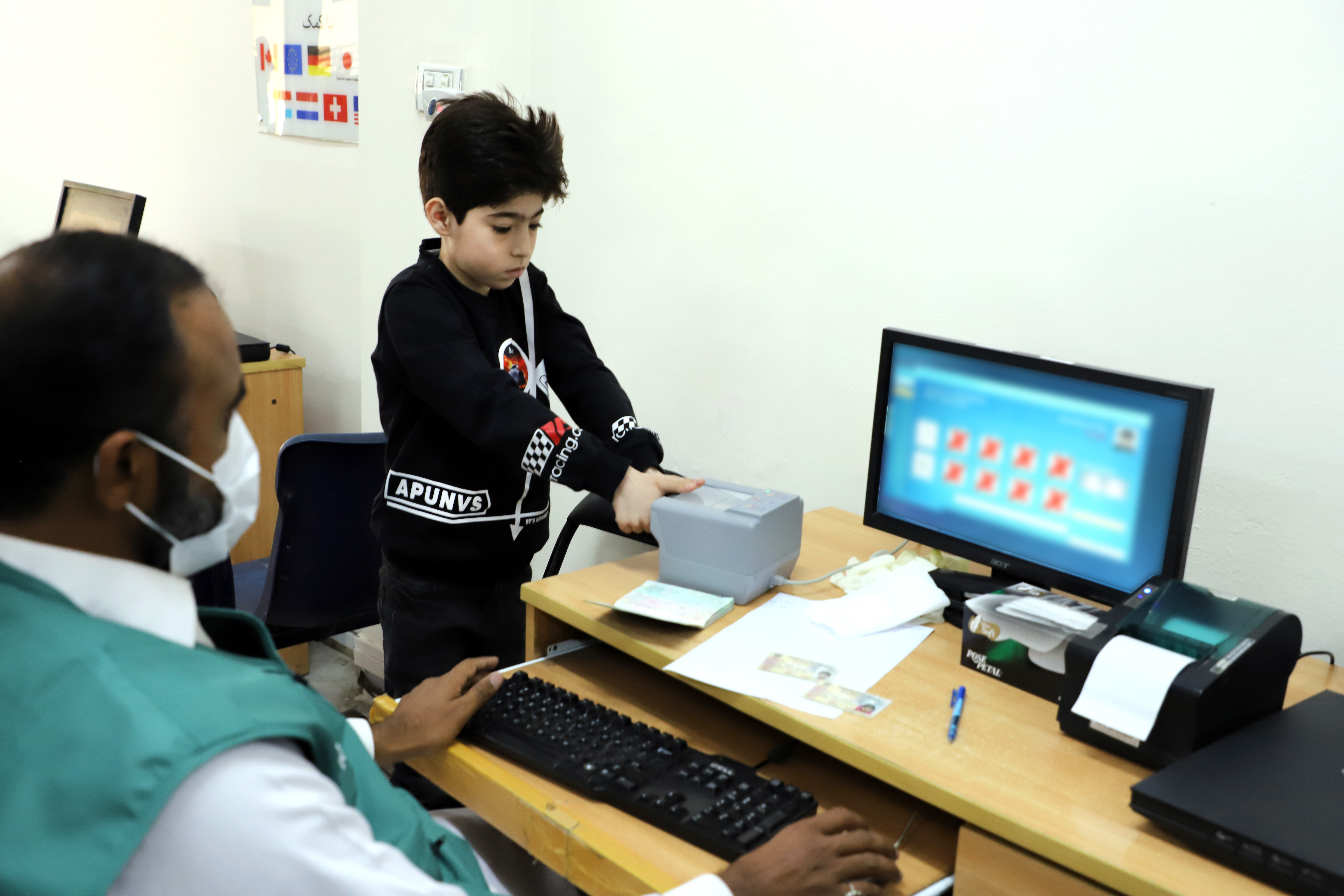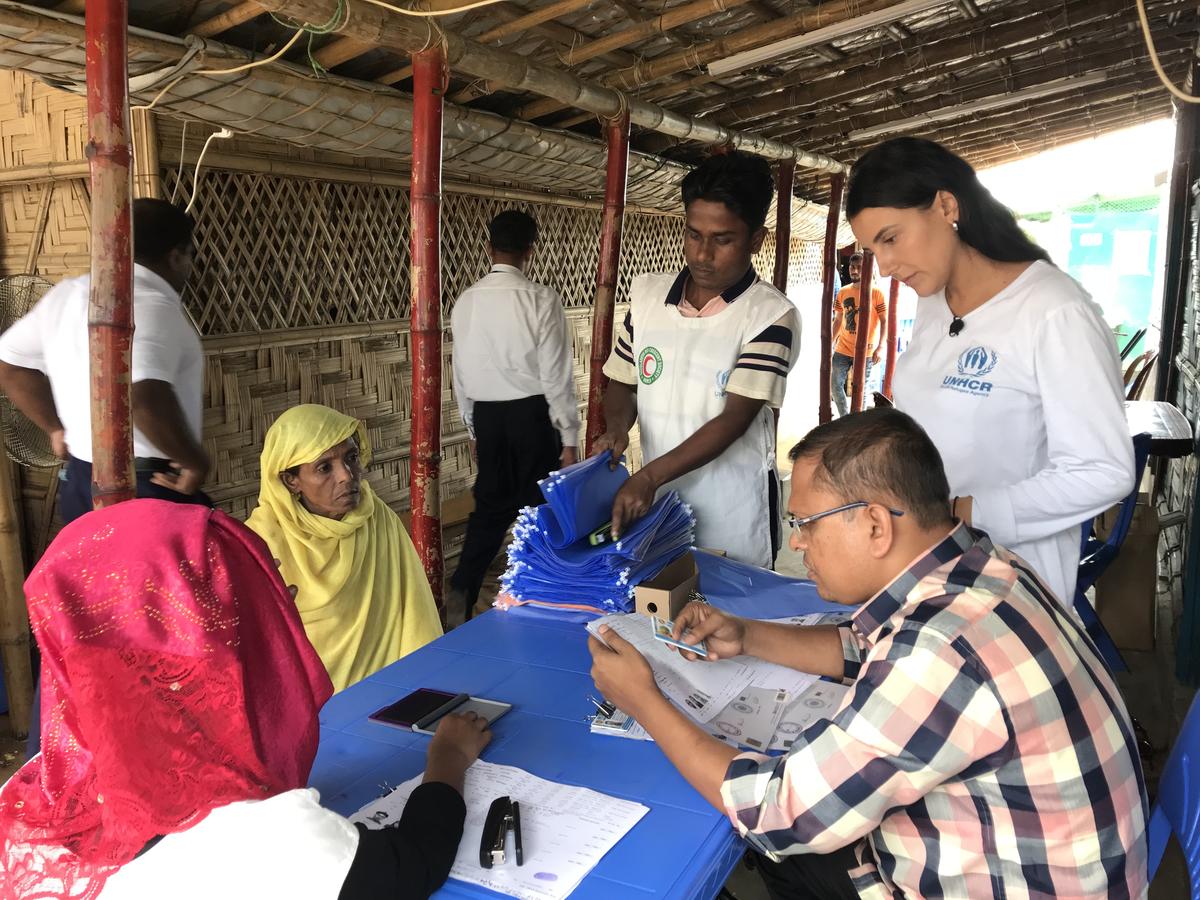Ecuador's northern border: Refugee documentation comes to the jungle
Ecuador's northern border: Refugee documentation comes to the jungle

PUERTO EL CARMEN, Ecuador, August 17 (UNHCR) - After more than two decades in Ecuador, Nely*, a Colombian woman in her fifties, has finally received her refugee visa. In just one day recently, she got the document that will make her most cherished dream come true: to go visit her 20-year old son, who has been living in the small city of Lago Agrio ever since he suffered a motorbike accident that left him disabled.
Lago Agrio is the largest city in the Ecuadorian Amazon region, 200 kilometres away from where Nely lives inside the Amazon. It's nearly beyond her budget - she only earns $35 a month - to get there, but the bigger problem up until now has been the lack of legal documents proving her refugee status.
"My house is three hours by foot through the forest from the nearest road," she explained at the documentation centre in Puerto El Carmen. "From there, I would have to pay $20 to go to Lago Agrio but without a refugee visa I would not have been able to get through the military checkpoints."
There are thousands of Colombian people who, like Nely, live in a refugee-like situation along the border without documents. In an unprecedented move, the Ecuadorian government, with technical and financial support from UNHCR, began a large-scale program of enhanced refugee registration.
With local campaigns in some of the most remote areas of Ecuador, the enhanced registration project aims to rapidly grant refugee status to people in need of international protection by certifying their legal status and providing identity documents. It aims to document around 130,000 people countrywide who until now have not had access to the asylum system.
More than 11,000 refugees were registered in Esmeraldas Province in western Ecuador between March and June. Now the project has moved on to the Amazonian province of Sucumbios, along the border with Colombia, a remote area lacking basic services where thousands of Colombians live in a refugee-like situation.
Ecuadorian civil servants and UNHCR staff crossed difficult roads and rivers in the rainforest with heavy and often delicate electronic equipment and computers to reach many previously off-limits areas. The mobile brigades managed to document nearly 2,000 people in the first few days and aim to register thousands more in the next three months.
"The province is right on the border with Colombia and is home to many Colombians fleeing conflict in their homeland," said Luis Varese, UNHCR deputy representative in Ecuador. "The security situation is tense and the impact of the Colombian conflict is strongly felt. The delivery of a visa by the Ecuadorian government reinforces the state presence in the area, which contributes to protecting refugees."
He added that "refugees will now be able to move freely and reach health centres, schools and other services. Documentation makes a real difference in the individual lives of thousands of refugees."
It has certainly put a smile back on Nely's face. Despite all the hardships she has suffered since leaving her home area of Caqueta in southern Colombia, she grinned and waved her brand new refugee card as she left the documentation centre and headed directly for the Puerto El Carmen bus station for Lago Agrio to see her son after years of separation.
By Sonia Aguilar
In Puerto El Carmen
* Name changed for protection reasons








